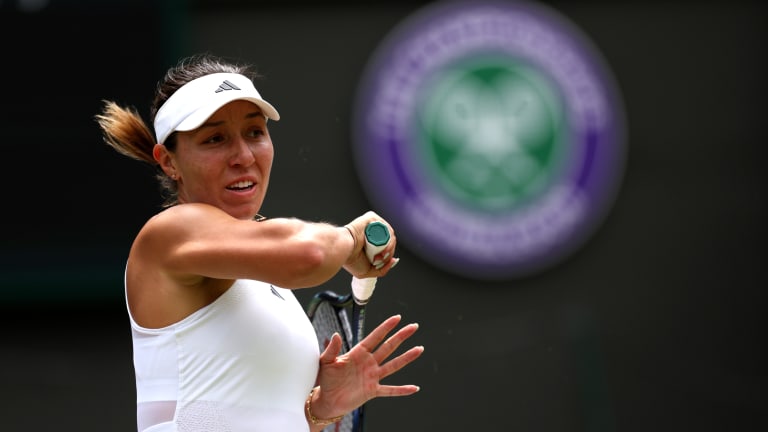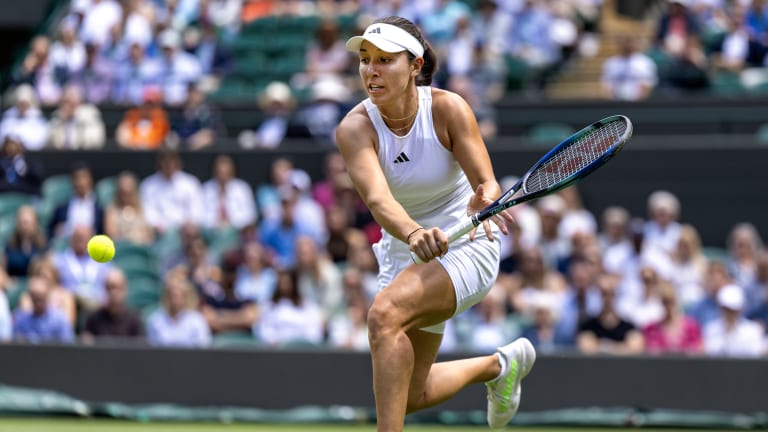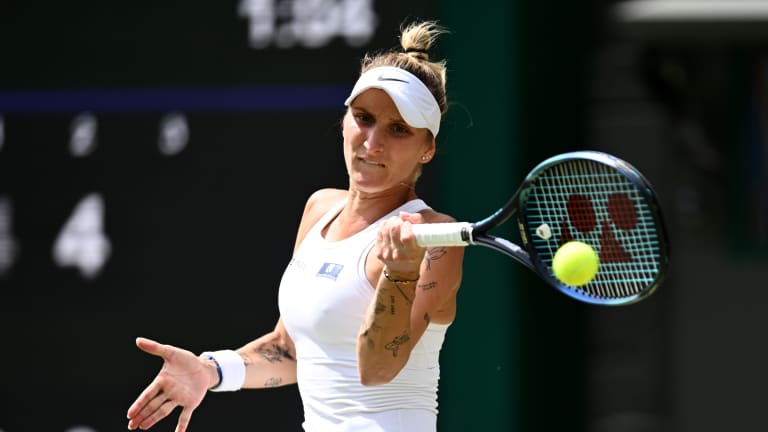Wimbledon
Marketa Vondrousova rallies after roof closure, as Jessica Pegula falls to 0-6 in Grand Slam quarterfinals
By Jul 11, 2023Wimbledon
Darren Cahill: Jannik Sinner watches more Carlos Alcaraz matches than he does with any other player
By Jul 14, 2025Wimbledon
Jannik Sinner reignites Carlos Alcaraz rivalry with Wimbledon victory
By Jul 14, 2025Wimbledon
Jannik Sinner reversed his usual pattern against Carlos Alcaraz. It won him Wimbledon
By Jul 14, 2025Wimbledon
Veronika Kudermetova and Elise Mertens win women's doubles title at Wimbledon
By Jul 13, 2025Wimbledon
Joy to the World: What Carlos Alcaraz has, and what we are enjoying
By Jul 13, 2025Wimbledon
Iga Swiatek keeps surprising herself after Wimbledon title caps "surreal" turnaround on grass
By Jul 12, 2025Wimbledon
Iga Swiatek wins first Wimbledon, sixth Grand Slam title with 6-0, 6-0 rout of Amanda Anisimova
By Jul 12, 2025Wimbledon
Wimbledon men's final preview: Will Carlos Alcaraz, Jannik Sinner share another epic?
By Jul 12, 2025Wimbledon
Julian Cash, Lloyd Glasspool become first all-British pair to win Wimbledon men's doubles title since 1936
By Jul 12, 2025Marketa Vondrousova rallies after roof closure, as Jessica Pegula falls to 0-6 in Grand Slam quarterfinals
The American had a break point for a 5-1 lead in the third set, before the Czech swept the final five games.
Published Jul 11, 2023
Advertising

Pegula didn't find her forehand too often in the first set.
© Getty Images
Advertising

Against Vondrousova, Pegula brought her doubles experience to bear.
© Corbis via Getty Images
Advertising

Vondrousova's combination of power and spin was a sight to behold.
© Getty Images